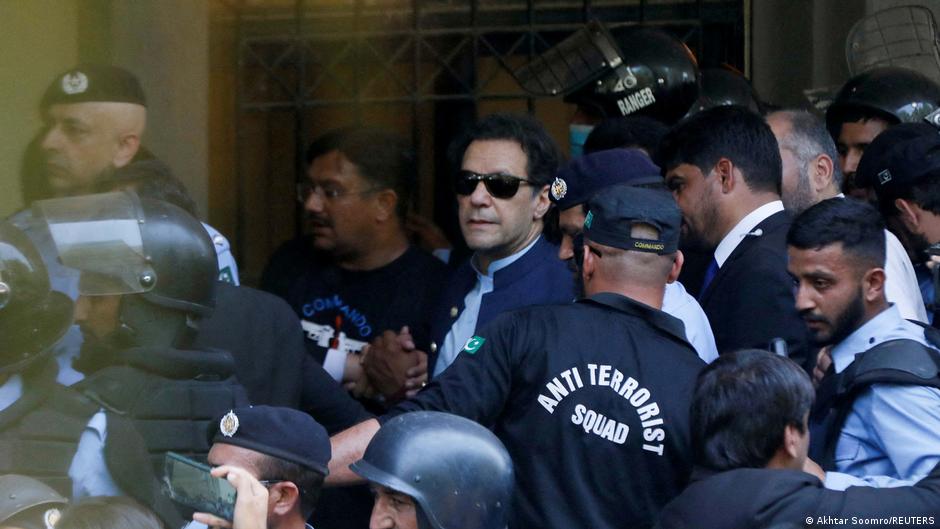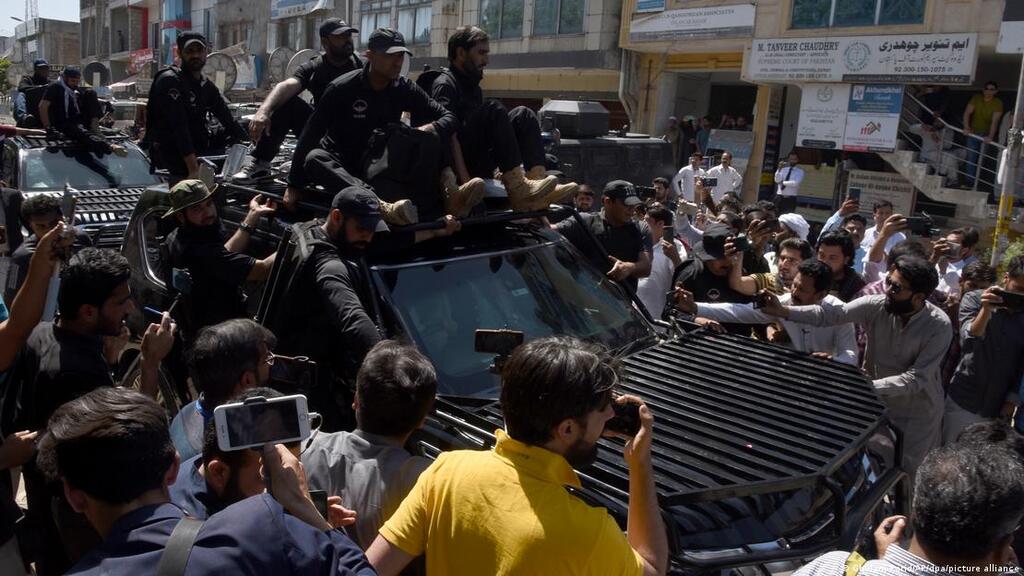Populism devours its children

The arrest of Pakistan’s former prime minister Imran Khan on 9 May was sudden, but not unexpected. When Khan arrived for a hearing at the Islamabad High Court, he was surrounded and hauled out of the court building by hundreds of members of a paramilitary unit.
Officially because of an arrest warrant in a corruption trial, but unofficially more likely due to his harsh criticism of the army's leadership, which Khan accuses of an attempt on his life.
Khan's arrest triggered nationwide demonstrations by his supporters, who clashed with police in street battles. They also chanted angry slogans against the military. The furious crowd attacked police stations, government buildings and military installations.
In Lahore, the historical corps commander's residence, also known as Jinna House after Pakistan's founding father, was looted and set on fire and in Rawalpindi, a mob attempted to storm the army's general HQ. Several people died in the confrontations; hundreds were injured or arrested.

Following his release several days later on the orders of the Supreme Constitutional Court, Khan again repeated his allegations against military chief Asim Munir and accused him of harbouring a personal grudge against the PTI. This marked a low point in relations between Imran Khan and his former supporters, the military.
The response from the generals and the government was swift. Over the next few days, many senior PTI officials were arrested and thousands of demonstrators and party sympathisers taken into custody.
In a meeting convened by the military, the head of the army announced that any civilians involved in the destruction of military installations would face a military tribunal. An escalation on this level would have been inconceivable just a few years ago.
Imran Khan’s failed project
Barely four years have passed since Imran Khan tirelessly stressed in the wake of his election victory that he and the establishment (a euphemism for the military) were all on the same page. It is no secret that Khan’s party, the PTI, was helped to power by the military. The former head of the military intelligence service General Faiz is regarded as the mastermind behind Imran Khan’s victory.
The PTI win was preceded by a power struggle between the army leadership and the former prime minister Nawaz Sharif, during which Sharif and members of his government were indicted, disqualified and arrested on various corruption charges, in a similar way to action now being taken against Khan and his party. Back then, Imran Khan pledged his intention to fight corruption and mafia-like structures.
The populist campaign promises and the former cricket star's charisma attracted young voters from Pakistan's elite to the PTI.

Yet Khan's government was anything but democratic. During the almost three years that Khan was in office, critical journalists, opposition politicians, human rights activists and religious minorities suffered greater persecution than in preceding years. Within his own party and government, the cricket star liked to appoint his own confidants to key positions, to the chagrin of long-standing colleagues.
Before long, corruption allegations against senior PTI politicians were doing the rounds. These were all played down by Khan, who relied on his supporters in the military. Ultimately, this wasn't about democracy, but the ring-fencing of political power. And even now, Khan still relies on those sections of the military that sympathise with him; emphasising that he is not critical of the army institution itself, but of groups within it that want to harm him.
Several months later, the open rift with army leader General Bajwa over the appointment of the Inter-Services Intelligence chief led to a parliamentary no-confidence vote that toppled Khan's government. However, what the establishment probably didn't suspect was just how much traction the populist PTI machine had gained in the meantime.
Such populism has consistently been fuelled by the military itself in recent years; the result now is a certain polarisation within that very same institution. Many ex-officers and their relatives are openly declaring their support for Khan's party and criticising the generals' actions. Pakistan has never seen such vehement criticism of the military leadership from within its own ranks.
Khan's supporters, from a vast range of social backgrounds, have been fanaticised to such an extent that whenever their idol makes any kind of faux pas, they have an explanation at the ready. Even when Khan led his supporters to believe that an American conspiracy was to blame for his ousting. He has since retracted that claim and recently sought the help of U.S. senators in his battle for power.
The similarities with radical Trump supporters are striking. The new government under Shehbaz Sharif and the military leadership has so far been able to do little to counteract this. PTI propaganda is omnipresent in social media.
Quashing the PTI?
Just as for Khan's supporters, his arrest signified the overstepping of a red line, attacks on military installations on 9 May were the establishment's red line. The crackdown on his party is proving correspondingly severe. But putting an end to the Imran Khan project is also an attempt by the establishment to stop the polarisation within its own ranks. The PTI party executive is currently being dismantled through intimidation, arrests and other means.
In recent days, senior party members and Khan's closest confidants Shirin Mizari, Fawad Chaudhry and Asad Umar have left the PTI. Others are in detention, just like thousands of other PTI members. Khan is running out of options. The idea of banning the party altogether has now been mooted by some members of the government.
Paradoxically, the party of Nawaz Sharif – forced out of office precisely because of its criticism of the military – is now justifying the armed forces' actions. Completely forgetting Nawaz Sharif's anti-establishment slogan vote ko izzat do, or "respect the vote", which took aim at the military's involvement in politics some years ago.
Undemocratic practices in Pakistan continue to cause political crises, leaving many to wonder whether the time has come for all the nation's institutions to learn from past mistakes and conduct their respective constitutional duties.
Yet again, Pakistan needs fundamental reform and a change of mindset, without which it will not be able to progress.
© Qantara.de 2023
Translated from the German by Nina Coon
Mohammad Luqman is an Islamic scholar and South Asia expert with a special research focus on Pakistan.
